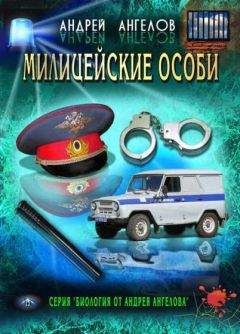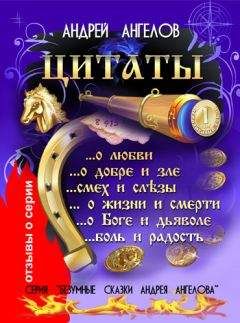Peake, Mervyn - 02 Gormenghast
He was meaner, more irritable, more impatient for the ultimate power which could only be his through the elimination of all rivals; and if he had ever had any scruples, any love at all for even a monkey, a book, or a sword-hilt all this, and even this, had been cauterized and drowned away.
As he had entered this second apartment, he had propped the broken pole against the wall on his left. He now felt himself gravitating towards it. He no longer stamped or strutted. He was himself again, or perhaps he had ceased to be himself. At any rate, the three watchers recognized again that familiar walk, with the shoulders hunched and the cat-like footsteps. When he reached the pole he ran his hand along its side. The scarf was still about his face. His dark red eyes were like small circular pits.
As his hand strayed over the surface of the pole, rather as a pianist will fondle a keyboard, his fingers came across a fissure in the wood, and as they played about it they found how easy it would be to tear from the beam a long and narrow splinter. Abstractedly, hardly knowing that he was doing it, a score of disquieting impressions had taken the place of the surety within him, he prised the splinter away, using, at the last, the whole strength of his arm as it arched, in its tension, from the pole. He did not look at it, and he was about to throw it away, for the tearing of it from the pole had been his only interest, when, his gaze having returned to the skeletons, he wandered towards them, and running the long resilient splinter along their ribs, as a child might run a stick along a railing, he heard the bone-notes of an instrument.
For a few minutes he spent his time in this way, creating by a series of taps and runs, a kind of percussive rhythm in key with his mood.
But he was tiring of the place. He had returned in order to satisfy his eyes that the Twins were truly dead, and he had stayed longer than he had intended. Now he flung the splinter away and, kneeling, unclasped the strings of pearls that hung about the vertebrae. Rising, he dropped them into his pocket and made at once for the three steps that led to the upper room and as he did so Mr Flay stepped out from his hiding place.
The effect upon Steerpike was electric. He bounded backwards, with a leap like the leap of a dancer, his cloak swirling about him and his thin lips parted in a murderous snarl of amazement.
There was no longer any case of symbolism. The strutting and the stamping were nothing to the fierce reality of that leap which sent him, as though from a springboard, backwards through the air.
Quick as a reflex, even at the height of his elevation, he felt for his knife.
Before he landed he knew that he was unmasked. That from now onwards, unless he slew the bearded figure, on the instant, he would be on the run. In a flash he saw the life of a fugitive spread out before him.
It was only as he landed that he realized at whom he was looking. He had not seen Flay for many years and had supposed him dead. The beard had altered him. But now he knew him, and this knowledge did nothing to stay his hand. Of all men, Flay would have the least sympathy for a rebel.
He had found his knife, had balanced it upon the palm of his hand and had drawn back his right arm when he saw the Doctor and Titus.
The boy was white. The poker shook in his hand but his teeth were gritted. A terrible sickness had hold of him. He was in a nightmare. The last sixty minutes had added more than an hour to his age.
The Doctor was pale also. His face had lost all trace of its habitual drollery. It was a face cut out of marble, strangely proportioned but refined and determined.
The sight of the three of them, blocking the stairs, halted Steerpike's arm as he was about to launch the knife.
And then, in a peculiarly quiet voice clear and precise, a voice that told nothing of the hammering heart...
'You will drop your penknife to the ground. You will come forward with your arms raised. You are under arrest,' said the Doctor.
But Steerpike hardly heard him. His future was ruptured. His years of self-advancement and intricate planning were as though they had never been. A red cloud filled his head. His body shuddered with a kind of lust. It was the lust for an unbridled evil: It was the glory of knowing himself to be pitted, openly, against the big battalions. Alone, loveless, vital, diabolic - a creature for whom compromise was no longer necessary, and intrigue was a dead letter. If it was no longer possible for him to wear, one day, the legitimate crown of Gormenghast, there was still the dark and terrible domain - the subterranean labyrinth - the lairs and warrens where, monarch of darkness like Satan himself, he could wear undisputed a crown no less imperial. Poised like an acrobat and vividly aware of the slightest move that was made by the three figures before him, the Doctor's voice for all his sensory acuteness, seemed to come from far away.
'I give you one last chanc' said his ex-patron. 'If you have not dropped your knife within five seconds from now, we will advance upon you!'
But it was not the knife that dropped. It was Flay. The loyal seneschal fell backwards with a grinding cry and was half caught in the arms of Titus and the Doctor, and in that instant, while the blade of Steerpike's knife still quivered in his heart, and while the four hands of Flay's friends were engaged with the weight of the long ragged body, the young man, following the path of the flung knife, as though he were tied behind it, sped over their shoulders and was in the upper room before they could recover.
Now, with the fear of retributory death upon him, and the redoubled cunning that comes to the marked man, Steerpike lost not a second in speeding from the room. But he did not pass through the door alone, for as he slammed it and turned the key in the lock he was bitten savagely in the back of the neck. With a scream he swivelled on his feet and clutched at nothing.
A panic possessed him and he ran as he had never run before, turning left and right like a wild creature as he made his way ever deeper into a nether empire.
Outside the door of what had been the Twins' apartment, the monkey, squatting on a rafter, chattered and wrung its hands.
FIFTY-NINE
A few days after the murder of Mr Flay and the subsequent smashing of the door and escape of the Doctor and Titus from those dread apartments, the relics of the Twins were heaped into a single coffin and were buried, at the orders of the Countess, with all the rites and solemnities that were due to the sisters of an earl.
Mr Flay was buried on the same day in the graveyard of the Elect Retainers, a small space of nettle-covered ground. At evening the long shadow of the Tower of Flints lay across this simple boneyard with its conical heaps of stones to show where not more than a dozen servants of exceptional loyalty lay silently under the tall weeds.
Had Mr Flay been able to foresee his funeral he would have appreciated the honour of joining so small and loyal a company of the dead. And if he had known that the Countess herself, in draperies as black and as intense as the plumage of her own ravens, was to be there at the graveside, then his wounds would indeed have been healed.
The Poet had taken over as Master of Ritual. He had no easy task. Night after night, his long wedge-shaped head was bowed over the manuscripts.
When the Countess had been told by Prunesquallor of the finding of the Twins, the manner of Flay's death, and of Steerpike's escape, she had risen from the upright chair in which she had been sitting, and without any change of expression in her big face had lifted the chair from the floor and had methodically broken its curved legs off one by one, and had then, in what seemed to be a state of abstraction, tossed the chair-legs one after another through the glass-panes of the nearest window.
When she had done this she moved to the smashed window and stared through the jagged hole. There was a white mist in the air and the tops of the towers appeared to be floating.
From where the Doctor stood he saw, for the first time, a picture. He was not looking for one. What pictures he had ever painted had been very delicate and charming. But this was quite different. He saw something dynamic, something quite wonderful in the contrast of the sharp and angular edges of the broken glass, and the smooth and doming line of her ladyship's shoulders that, in the immediate foreground, curved heavily across the jaggedness. And at the same time he saw the deep, copper-beech colour of her hair against the Pearl-grey tower-tops that floated in the distance. And the blackness of her dress, and the marble of her neck and the sheen of the glass, and the pollen-like softness of the sky and towers so jaggedly circumscribed. She was a monument against a broken window and beyond the broken window her realm, tremulous and impalpable in the white mist.
But Dr Prunesquallor had only a few moments in which to regret that he had not learned to paint, for the monument turned about.
'Sit down,' she said.
Prunesquallor looked about him. The confusion in the room made it difficult for him to see anything that could possibly be sat on, but he found himself a perch at last in the corner of a window-sill that was scattered with bird seed.
She approached and stood above him. She did not look down, but gazed through a small casement above his head while she spoke. Finding that she never turned her eyes to him and that for him to look up when listening or speaking was neither noticed nor necessary, and what is more that it gave him a pain at the back of his neck, the doctor gazed at the scallops of sartorial immediately ahead of him and within a few inches of his nose, or simply shut his eyes as they conversed.
It was soon obvious to the Doctor that he was in conversation with someone whose thoughts were concentrated upon the capture of Steerpike not only to the exclusion of everything else but with a menacing power and a ruthless simplicity.
Her heavy voice was slower than ever.
'All normal work shall be suspended. Man, woman and child shall be given their orders-of-search. Every known spring and well head, every cistern, tank and catchment shall have its sentry. No doubt the beast must drink.'
The Doctor suggested a meeting of officers, the drawing up of a plan of campaign, the working out of a time table or rota of sentries and search parties, and the formation of redoubtable bands drawn from the young blood of the castle's lower life where there was no lack of spleen, and where the price which was to be set upon Steerpike's head would encourage their intrepidity.
They agreed that there was no time to waste for with every hour that passed the fugitive would be withdrawing ever more deeply into some forgotten quarter, or constructing some ambuscade or hiding place, even at the heart of the castle's activities. There was no place on earth so terrible and so suited to a game of hide and seek as this gaunt warren.
Leaders were to be chosen. Weapons were to be served out. The castle was to be placed upon a war footing. A curfew was to be imposed, and wherever he might be lurking, from vault to eyrie, the murderer was to have no respite from the sound of feet and the light of torches. Sooner or later he would make his first mistake. Sooner or later, in the corner of some eye, the tail of his shadow would be seen. Sooner or later if there was no relaxation in the search, he would be found at some well-head, drinking like an animal, or flying from some storehouse with his plunder.
The Countess was using her powerful brain as though for the first time. The Doctor had never known her like this. Had her cats entered the room or a bird descended flapping to her shoulder it is doubtful whether, at this moment, she would have noticed them. Her thoughts were so concentrated upon the seizure of Steerpike that she had not moved a muscle since she and the Doctor had started talking. Only her lips had moved. She had talked very slowly and quietly but there was a thickness in her voice.
'I shall outwit him,' she said. 'The ceremonies shall continue.'
'The Day of the Bright Carvings?' queried the Doctor. 'Shall it proceed as usual?'
'As usual.'
'And the Outer-dwellers be allowed within the gates?'
'Naturally,' she said. 'What could stop them?'
What could stop them? It was Gormenghast that spoke. A fiend might be wandering the castle with dripping hands, but the traditional ceremonies were at the back of it all, enormous, immemorial, sacrosanct. In a fortnight's time it was their day, the day of the Mud Dwellers, when all along the white stone shelf at the foot of the long courtyard wall the coloured carvings would be displayed; and at night, when the bonfires roared and all but the three chosen statues were turned to ash in their flames, Titus standing on the balcony with the Outer Dwellers below him in the fire-lit darkness, would hold aloft in turn, each masterpiece. And as each was raised above his head, a gong would clash. And after the echoes of the third reverberation had died away he would order them to be taken to the Hall of Bright Carvings where Rottcodd slept and the dust collected and the flies crawled over the tall slatted blinds.
Prunesquallor rose to his feet. 'You are right,' he said. 'There must be no difference, your ladyship, save for an eternal vigilance, and unflagging pursuit.'
'There is never any difference,' she replied. 'There is never any difference.' Then she turned her head for the first time and looked at the Doctor. 'We will have him,' she said. Her voice, as soft and heavy and thick as velvet, was in so grim and incongruous a contrast to the merciless pin-head of light that glittered in her narrowed eyes that the doctor made for the door. He was in need of an atmosphere less charged. As he turned the door-handle he caught sight of the smashed window, and saw through the jagged star-shaped opening the towers floating. The white mist seemed lovelier than ever, and the towers more fairy-like.
SIXTY
Bellgrove and his wife sat opposite one another in their living room, Irma, very upright, as was her habit, her back as straight as a yard of pump-water. There was something irritating in this unnecessary rigidity. It was, perhaps, ladylike, but it was certainly not feminine. It annoyed Bellgrove for it made him feel that there was something wrong in the way that he had always used a chair. To his mind an armchair was something to curl up in, or to drape oneself across. It was a thing for human delectation. It was not built to be perched on.
And so he curled his old spine and draped his old legs and lolled his old head, while his wife sat silently and stared at him.
'... And why on earth should you think that he would dream of risking his life in order to attack you?' the old man was saying. 'You deceive yourself, Irma. Peculiar as he is, there is no reason why he should flatter you to the extent of killing you. To climb in at your bedroom window would be highly hazardous. The entire castle is on the watch for him. Do you really imagine that it matters to him whether you are alive or dead, any more than whether I am alive or dead, or that fly up there on the ceiling is alive or dead? Good grief, Irma, be reasonable if you can, if only for the sake of the love that once I bore you.'




